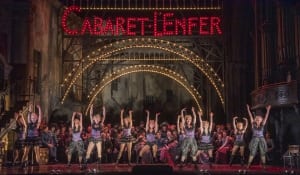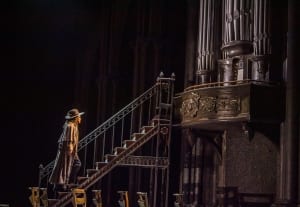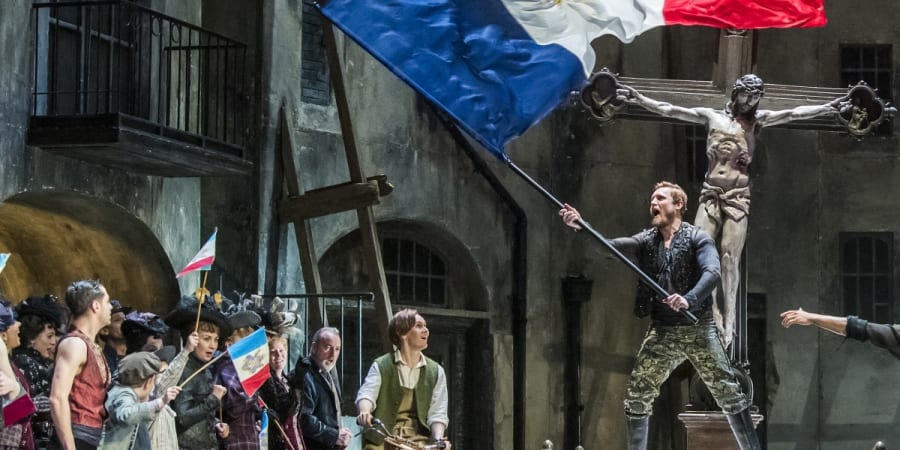To lose one soprano may be regarded as a misfortune – to lose two turns out to be a piece of good luck for Covent Garden because it brought to the stage, as a very last minute replacement, German soprano Mandy Fredrich. Alongside two of the most powerful male voices on the international stage, Michael Fabiano and Erwin Schrott, she more than held her own, bringing a sweetly lyrical approach to Gounod’s music for Marguerite, victim of Faust’s diabolical wooing.
There are many versions of the Faust legend – about the man who sells his soul to the devil in pursuit of something – wisdom, riches, eternal youth. In Gounod’s very French version Faust isn’t much interested in wisdom – he wishes to be young again apparently with no other motive than to re-capture the joys of love – or perhaps it is just lust? As the opera opens Faust is suffering from the trials of extreme old age. Rather by accident, he summons up the devil who readily provides him with renewed youth in return for the promise of his soul. Faust sees, and falls for, the innocent Marguerite whose brother and protector, Valentin, has just gone off to fight a war. Mephistopheles goads Faust into seducing Marguerite and she is duly ruined. As the opera ends Faust is racked with guilt and tries to save Marguerite from the gallows. She chooses God rather than Faust.

David McVicar’s production doesn’t shy away from the nineteenth century absurdities of the plot: Mephistopheles and his demons, the glorification of war, the sedate orgies of the Cabaret L’Enfer and Walpurgis Nacht, the sentimental religiosity of the ending. But he also does full justice to other aspects of the opera such as the humour in the role of the devil and the touching love scene that leads to Marguerite’s seduction. And so he manages to conjure up, out of these contrasting elements, an operatic experience that is rich and rewarding and allows the moments of beautiful music to shine.
Given that she arrived in London only two hours before curtain up, Mandy Fredrich’s performance was a minor miracle. She sounded understandably tentative in her first moments in McVicar’s over-busy nightclub scene but the long solo as she returns home to her room was assured and her love scene with Faust was sparkling. As Faust, Fabiano has everything needed and then some. The voice is a force of nature now, filling the auditorium even sotto voce. And, apart from his wonderful love duet with Marguerite, his interplay with Schrott works to perfection. As Mephistopheles Schrott is both playful and sinister at the same time. The devilish humour works a treat and even in the moments of cruelty we almost find ourselves on his side, such is his charm. And the voice is superb. Stephane Degout is a virile and vindictive Valentin. Marta Fontanals-Simmons is a touching Siebel, unable to turn aside the doom falling upon Marguerite.
The set is suitably rich and exotic – from the market square where a huge “Vive la Guerre” banner hangs, to the strange ‘otherworld’ of the opening and closing scenes where an opera house is conjured up on one side of the stage and a church with its organ loft on the other. Fine work from set designer Charles Edwards – and a particular word of praise for the lighting designer Paule Constable, who highlights key moments with real dramatic flair.
Dan Ettinger conjured the best out of the splendid ROH orchestra – you always know things are going to go well when the overture is played with such intense musicality. And the chorus was on particularly fine form, delivering some jingo-istic nonsense with power and passion. This is not a great opera but this is a very fine production – and I hope Mandy Fredrich is back in London very soon.


